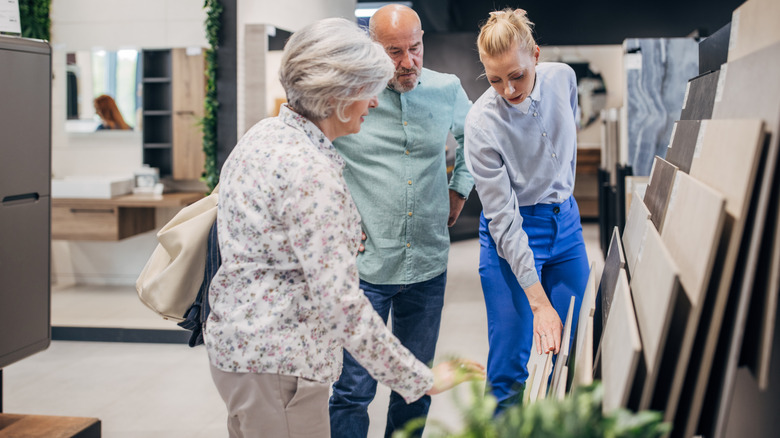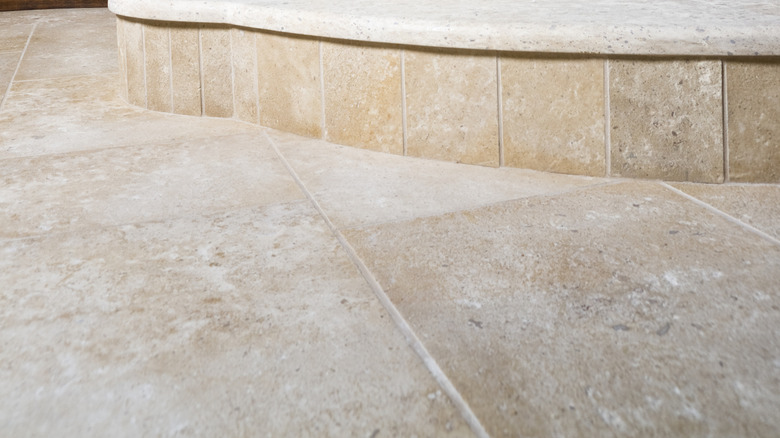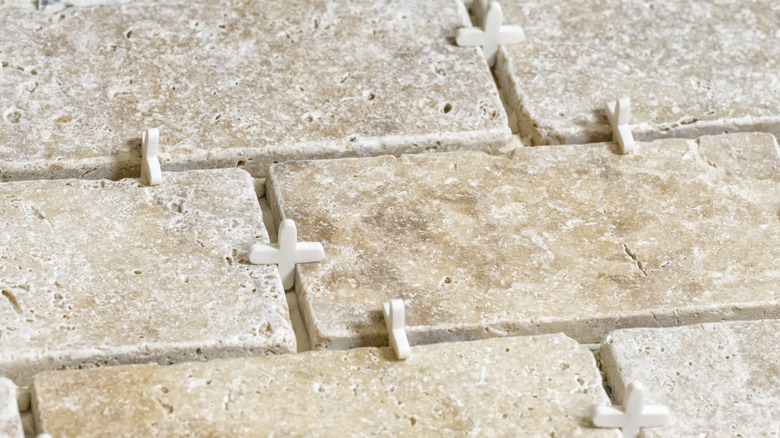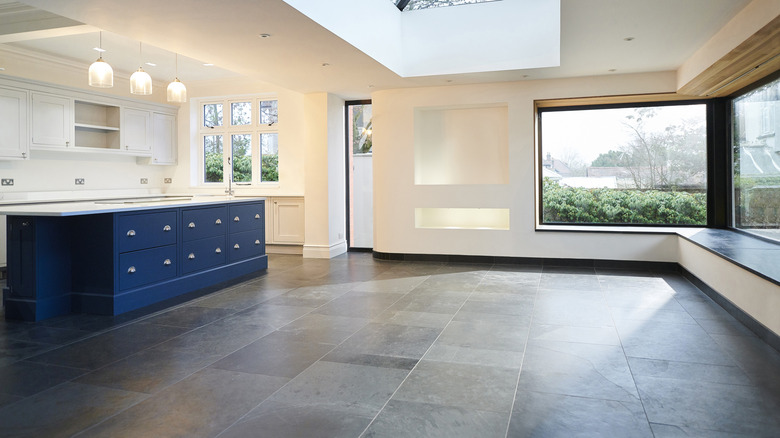The Sleek Natural Stone Flooring Option You Might Regret Installing In Your Home
One important feature you can't possibly overlook while buying a house or during a remodel is your home's flooring. Your floor can affect the look and feel of your home, and even its energy efficiency. There are a ton of flooring choices you can get for your home, and stone floors are an option you'll likely admire because of their uniqueness and strength. Among the stone choices available, limestone flooring stands out because it is a beautiful and versatile choice that will fit most homes. However, what you need to know about natural stone tiles is that although they all look perfect at first glance, there are downsides to every type. And if you're considering limestone, there are some cons you shouldn't ignore like issues with maintenance and installation, as well as durability concerns.
These issues are key reasons why you could regret installing limestone flooring in your home, especially in certain parts of it. High-traffic areas like your entryway or kitchen require floors that are strong enough to withstand daily wear and tear. You also need to install moisture-resistant floors in your bathroom and laundry room. Unfortunately, limestone won't work well for both cases because it has inherent properties that affect its durability in those spaces. Additionally, busy homeowners with children or pets may find limestone floors to be too much work because of the frequent maintenance concerns that could come up.
Problems surrounding limestone's durability
Limestone floors are not as strong as other natural stones like marble and granite. This makes them erode faster when installed in high-traffic areas due to the grinding between your feet, the dirt, and the limestone flooring. If you have children or a pet with nails in your home, this floor scratches easily and will likely wear out sooner than you might expect. Even dragging furniture or dropping objects can leave your limestone flooring with unsightly chips and scratches. And, to add to all that, limestone is porous. This porous structure contributes to the brittle nature of this stone, making it more susceptible to chips and cracks.
Water and dirt can get into the pores of your floor, even if they are sealed, and cause damage. This could range from discoloration of the tiles to possible cracks due to freezing water in spaces that become cold, like covered porches and three-season rooms. The floor can also create the perfect home for mold and algae if the limestone is frequently wet and there isn't enough ventilation. This is why it wouldn't be a good idea to install these floors in spaces like the laundry and bathroom. This porosity also makes your kitchen a poor choice for limestone floor installation. The kitchen typically houses acidic liquids like fruit juice, wine, vinegar, and coffee that can easily stain and etch the floor. Etching appears as dull marks on your floor surface that are a result of the floor's reaction with acid. It affects not just the color but the texture of that area, corroding it slightly and making that spot rougher than the rest of the floor.
Installation and maintenance hassles
To avoid as many porosity issues as possible, you're advised to seal your limestone floor properly. Research the type of sealant that is correct for the density of limestone you have in your home. This will provide a protective layer over the stone to prevent some water damage and stains from spills. Unfortunately, this isn't a one-and-done procedure. Your sealer layer will wear off after a while and you'd need to reapply it every two years. Plus, it still requires a lot of ongoing maintenance because sealing your limestone floor doesn't protect it from acid damage entirely. It just gives you more time to clean up any spill before it soaks into the floor. This is why limestone is one of the stone floors you can't clean with vinegar because acid-based cleaners will stain and etch the stone, sealed or not.
Limestone flooring installation isn't a project you should attempt on your own unless you're confident of your chops. This is for a few reasons. First, you should know that limestone tiles are pretty heavy. This means that you have to first prepare your subfloor for all that weight to prevent cracks, and that can be a lot of work. Your subfloor also has to be perfectly level, as that can affect your limestone tiles, causing uneven placements or lippage. Plus, the stone can easily be chipped if it's not handled properly, so you have to be extra careful during installation. You could still attempt putting in this floor yourself but you'll be better off calling in the pros, which will add to the installation costs.
Alternative stone flooring options
If limestone isn't the perfect fit, there are a few other alternatives that might be better for your home. The first is marble, and it is a better option than limestone in a lot of ways. Sometimes limestone is called "young marble" because although they're both sedimentary rocks, more heat and pressure are necessary to create marble, making it more dense. This makes it more durable than limestone in high-traffic areas, and less susceptible to chips and scratches. The stone is less porous than limestone, so while it can be stained and would also need sealing, it'll take a lot more insult to do damage.
On the other hand, if you want a low-maintenance floor, you could go for granite tiles. This stone is tougher than both marble and limestone, able to last a long time with proper care. It is less porous than both marble and limestone, making it more resistant to stains. It is also a denser material, which makes it more scratch-resistant and durable, even though the weight is still a concern here. And while all stone tiles give a boost to your property value, granite flooring has a higher impact than most due to the stone's remarkable longevity.
However, you should know that these two options are more expensive than limestone. An average square foot of marble and granite costs $5-$10 and $5-$15 respectively, while limestone goes for $3-$10. It'd also be wise to confirm the products and cleaners that are safe for stone floors in general so you don't damage your floors.



